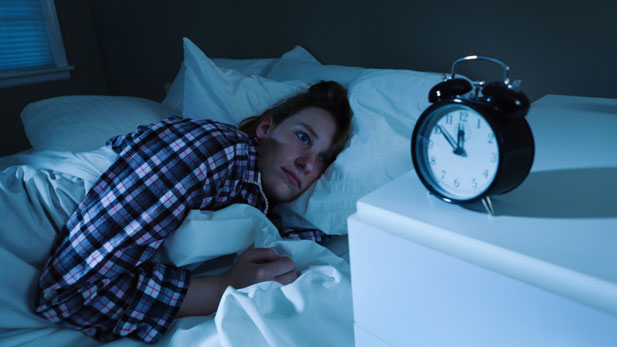 The content and information below is republished with permission from the Cleveland Clinic.
The content and information below is republished with permission from the Cleveland Clinic.
At the end of a long, hard day, you want to crawl into your cozy bed for a good night’s sleep — just what you need to recharge for tomorrow.
But what happens when that cozy bed turns into a place of anxiety and restlessness?
We all get a bad night’s sleep every now and then. But when a bad night’s sleep turns into a sleepless pattern that affects your daily life, it’s time to talk to your doctor. Start by asking yourself these questions.

1. Is lack of sleep disrupting your life?
When it comes to sleep, there are no hard and fast rules. Some people need the traditional eight hours a night or more, while others function on less. Instead of fixating on how many hours of sleep you get, focus on how you feel during the day.
Are you having difficulty concentrating at work? Is daytime sleepiness preventing you from accomplishing your daily tasks? Worse, do you feel sleepy while driving? If the answer is yes, a sleep disorder — anything from insomnia to sleep apnea — may be preventing you from getting the sleep you need to function.
2. What’s the source of your sleep difficulties?
There are plenty of reasons for poor sleep, so narrowing down the cause is important.
For example, many patients say, “I can’t fall asleep because I think about how much I need to do at work the next day.” Stress is a common cause of insomnia.
Others may wake up in the night because of physical issues. Sleep apnea — disrupted breathing while you are asleep — is increasingly identified as a culprit. But depending on your symptoms, your doctor will want to discuss other possible causes, too, such as Restless Legs Syndrome. And if you have to get up multiple times each night to urinate, he or she will want to rule out underlying medical conditions.
3. Are you adjusting your behavior for better sleep?
For certain sleep disorders, you can start with simple steps to catch more Zs.
It starts with good sleep hygiene, such as avoiding caffeine and heavy meals late in the day and using your bed only for sleep and sex. That means keeping smartphones, tablets and other stressful reminders of the workday out of the bedroom.
When stress is a major factor, your doctor may recommend yoga, meditation or another stress-management technique that suits your needs. In addition, exercise can help you reduce stress and give you a boost for better sleep in general.
If serious anxiety or panic attacks keep you awake, tell your doctor. You may need additional help in the form of medication, counseling or a combination of the two.
4. Are you depending on medication?
Speaking of medication, when it comes to insomnia, I always bring up behavioral modification first.
Yes, some people find relief from over-the-counter sleep aids. And yes, others get temporary help from prescription medications. However, too often, medications that aid sleep come with a risk of dependence.
Over time, you may come to depend on pills for sleep — making it more difficult for you to get sleep naturally, which should be your ultimate goal. Unfortunately, medication dependence can turn short-term cases of insomnia into chronic cases.
5. Is it time to see a sleep specialist?
If you have certain risk factors — including snoring, daytime fatigue, high blood pressure, a high body mass index and others —your doctor may prescribe a sleep study to confirm a sleep apnea diagnosis and possibly refer you for a consultation with a sleep specialist.
As awareness of sleep apnea rises, more and more patients ask primary care providers like me about it. That’s a good thing, because sleep apnea is treatable. The traditional treatment, positive airway pressure (PAP), is highly successful. Best of all, treatment not only improves your sleep quality, but also reduces your long-term risk of other conditions such as heart attack, stroke and diabetes.
–By Kathryn Teng, MD., health.clevelandclinic.org

